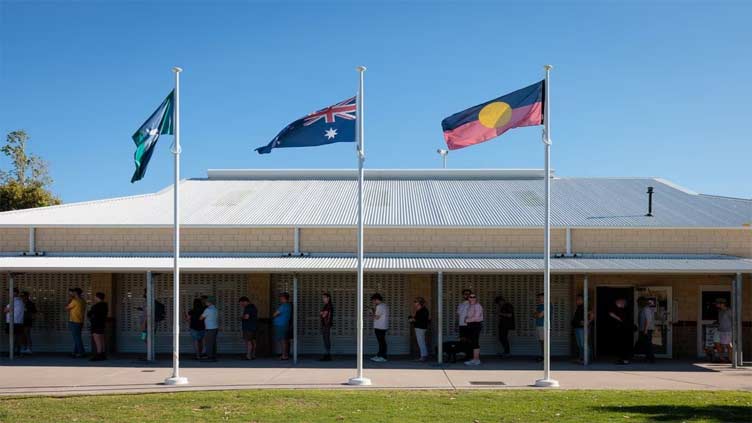Australia votes in landmark Indigenous Voice referendum

World
Referendums are difficult to pass in Australia, with only eight of 44 succeeding
SYDNEY (Reuters) - Prime Minister Anthony Albanese made a last-ditch appeal on Saturday for his fellow Australians to back a referendum to recognise Indigenous people in the constitution, as the country went to the polls to decide on the historic measure.
"I sincerely hope that Australians, when they walk into that ballot box today, vote 'Yes'," Albanese said in Sydney, according to a transcript.
Australians must write 'Yes' or 'No' on the ballot to answer whether they agree to alter the 122-year-old constitution to recognise Aboriginal and Torres Strait Island people and create an Indigenous body, called the Voice to Parliament, that can advise the government on Indigenous issues.
A poll released on Saturday indicated the 'No' vote is likely to succeed despite a late lift in support for 'Yes'. Academics and human rights advocates fear a win for the 'No' camp could set back reconciliation efforts by years.
/cloudfront-us-east-2.images.arcpublishing.com/reuters/L6X5D4RJVRM3DECZ3HT36JRBOE.jpg)
Supporters of the proposal believe entrenching an Indigenous Voice in the constitution would unite Australia and usher in a new era with its Indigenous people, who account for 3.8% of the population and are its most disadvantaged, by most socio-economic measures.
Many Indigenous people favour the change, but some say it is a distraction from achieving practical and positive outcomes and would not fully resolve issues affecting them. The political opposition says the measure is divisive, would be ineffective and would slow government decision-making.
Polls opened at 8 a.m. (from 2100 GMT on Friday in Sydney and Melbourne to 2400 GMT in Perth), although nearly half the more than 17 million eligible to vote had cast their vote early. Voting is compulsory in Australia.
Vote counting starts after polls close at 6 p.m. (0700 GMT in Sydney), and the Australian Electoral Commission will release tallies as they come in.
/cloudfront-us-east-2.images.arcpublishing.com/reuters/6BN7O5S4YNNDPBQ5IRV3MQ7IBA.jpg)
At Sydney's Bondi Beach, Indigenous man Michael Mahoney said he voted 'Yes' for "equality for all people, and a voice from my people to be part of our constitution".
Nearby, Sydneysider Geoff Sumner said he voted 'Yes' in the hope that "this will make a difference and we can improve Aboriginal conditions all around".
Another voter and 'No' campaigner, Greg Mason, doubted the usefulness of an Indigenous Voice to Parliament.
"The Voice is another bureaucracy on top of already multiple bureaucracies which don’t provide answers," he said. "They don’t provide solutions to generational change."
Referendums are difficult to pass in Australia, with only eight of 44 succeeding since the nation's founding in 1901. Constitutional change requires a majority of votes both nationwide and in at least four of the six states.


/cloudfront-us-east-2.images.arcpublishing.com/reuters/CMRRT72HSFBB5AL7CT4U7E7WBU.JPG)
